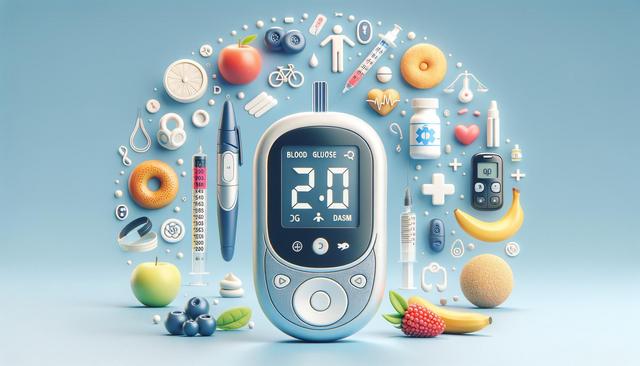Highly rated and least recommended foods for Diabetes

Understanding Diabetes and Its Dietary Needs
Diabetes is a chronic condition that affects how your body turns food into energy, specifically impacting insulin production and usage. Managing this condition relies heavily on dietary choices, making it crucial to understand which foods are beneficial and which are not. A balanced diet focusing on nutrient-rich options can help maintain stable blood sugar levels, which is key for those living with diabetes. Emphasizing foods with a low glycemic index and high in fiber can be particularly advantageous. This approach not only supports overall health but also aids in preventing the complications that can arise from poorly managed diabetes.
Highly Rated Foods for Diabetes
When it comes to managing diabetes, there are several foods that are generally recommended due to their nutritional benefits and positive impact on blood sugar control. These foods include:
- Leafy Greens: Spinach, kale, and other leafy vegetables are low in calories and carbohydrates, making them ideal for maintaining healthy blood sugar levels.
- Berries: Packed with antioxidants, berries such as blueberries and strawberries provide a sweet treat without spiking blood sugar.
- Whole Grains: Options like oats, quinoa, and brown rice are high in fiber and nutrients, which can help regulate blood glucose.
- Fatty Fish: Rich in omega-3 fatty acids, salmon and mackerel support heart health and provide essential nutrients.
- Nuts: A handful of almonds or walnuts can provide healthy fats and protein, promoting satiety and stable blood sugar.
Incorporating these highly rated foods into a daily diet can help manage diabetes more effectively and support overall well-being.
Least Recommended Foods for Diabetes
While some foods are beneficial, others can be detrimental to those with diabetes. It’s important to be aware of foods that can lead to rapid spikes in blood sugar. These include:
- Refined Carbs: Foods like white bread, pastries, and some cereals can cause blood sugar to rise quickly.
- Sugary Beverages: Drinks with high sugar content, such as sodas and sweetened teas, can lead to increased blood glucose levels.
- Processed Snacks: Items like chips and crackers often contain unhealthy fats and refined grains.
- Full-Fat Dairy: Products such as whole milk and full-fat cheese are high in saturated fats, which can contribute to heart disease risk.
- Fried Foods: These foods not only add extra calories but can also raise cholesterol levels.
Avoiding these foods can help maintain a more balanced blood sugar level and reduce the risk of diabetes-related complications.
Creating a Balanced Diabetes-Friendly Diet
Designing a balanced diet for diabetes doesn’t have to be complicated. By focusing on whole, unprocessed foods, individuals can create meals that are satisfying yet healthy. Some tips for creating a diabetes-friendly diet include:
- Portion Control: Keeping portions in check can prevent overeating and maintain stable blood sugar.
- Mindful Eating: Paying attention to hunger cues and eating slowly can help with digestion and blood sugar regulation.
- Meal Planning: Preparing meals ahead of time ensures that healthy options are readily available and helps avoid impulsive choices.
- Consistent Meal Times: Eating at regular intervals can help manage blood glucose levels throughout the day.
These strategies can empower individuals to take control of their diabetes management through thoughtful dietary choices.
The Role of Professional Guidance
While general dietary guidelines can be beneficial, personalizing a diet plan under the guidance of healthcare professionals is often recommended. Nutritionists and dietitians can offer tailored advice that considers individual health needs, lifestyle, and preferences. This professional guidance ensures that dietary changes are sustainable and aligned with medical recommendations. Additionally, regular check-ups with healthcare providers can help track progress and make necessary adjustments to the dietary plan.
Conclusion
Effectively managing diabetes through diet involves a thoughtful balance of highly rated foods and the avoidance of those less recommended. By understanding the impact of different foods on blood sugar levels, individuals can make informed choices that support their health. Incorporating nutrient-dense foods, maintaining portion control, and seeking professional advice are all critical components of a diabetes-friendly lifestyle. These strategies promote not only better management of diabetes but also overall well-being and a higher quality of life.
